BY MIKE METTLER — FEBRUARY 11, 2015
Don Felder has found his groove. The former lead guitarist of the Eagles is now flourishing as a solo artist, having found his sea legs on record with the broad reach of Road to Forever (INgrooves/Forever Road Music) — only his second solo album in 30-odd years, following 1983’s Airborne — and a quite muscular live set, which features Eagles favorites and deep cuts alike, ranging from “Already Gone” to “One of These Nights” to “Life in the Fast Lane” to “Those Shoes,” all interspersed between powerful readings of solo favorites like “You Don’t Have Me” and “Heavy Metal.” Notes Felder, “It’s the freedom I feel as an artist to be able to make those decisions I need to make artistically and also be able to work when and where I want to work, and choose what songs are going to be in the show. When I was in the Eagles, I had absolutely no control over that whatsoever.”
Before heading out on his winter solo tour, Felder, 67, and I got together to discuss his thoughts on sound quality, the very mystique of California itself, and how he came to create the acoustic intro that turned the already indelible “Hotel California” into a revamped classic. Ah, such a lovely place.
Mike Mettler: We’ve talked before about how much you believe in high-resolution audio, and how you want people to hear your music in the best quality possible. I have to imagine that’s still very much the case.
Don Felder: Oh yes. For an artist to spend days, weeks, months, or even years writing, recording, mixing, and putting unbelievable amounts of thought and detail into every word, every microphone selection, and every finalized mastering dB that goes into the music, and then have people buy an MP3 download and listen to it on a $3 pair of earbuds — that’s a tragedy. It’s a tragedy that so much is missing at that low-res quality. As a matter of fact, I would prefer to listen to old vinyl records on a Voice of Music turntable played through an old Delco speaker than listen to that brittle, depthless sound that you get from earbuds. It’s a different world. As easy as it is to be able to download all that music instantly, the quality of what you’re getting has been sacrificed dramatically for the convenience.
Mettler: I couldn’t agree with you more. What’s the pinnacle in terms of sound quality that you’ve heard during the recording process?
Felder: The closest and the best I’ve heard of the work I’ve done either with the Eagles or my own solo projects is the final mixing in the studio. Depending on what room it’s done in and what playback system is used, it’s even better there than it is in the mastering, to me. It’s pretty hard to replicate that unless you’re at 96/24 high-res like you’re talking about, and you’ve got it on a real sound system. Then you can really detect the separation and the frequencies on the instruments. You can see and feel the breadth and width of the sonic creation that’s been done. When it gets squashed and compressed into an MP3, that all goes away.
Mettler: David Crosby and I talked about how overtones get completely lost — the sound between the notes, and between the strings. You don’t get any of those subtleties with MP3.
Felder: That’s right! Everything feels like it’s compressed down into this little bland layer. It’s a very narrow bandwidth that you’re listening to at that MP3 level.
Mettler: Is there one track from Road to Forever that would be optimal to listen to in 96/24?
Felder: It would have to be “Heal Me,” the extended version with the breakdowns, the big chorus and the main vocal, and the African section in the end. It was my musical creation to go from the very opening through the transformation of having been healed, and then go into this joyous celebration at the end. Sonically, we tried to do that same thing where it grows wider and broader and kind of flourishes toward this very joyful ending that’s very upbeat. That track most exemplifies it, yeah.
Mettler: That’s a great example. I’d say another good example would be the version of “Hotel California” you recut last year with the guys from Styx and Foreigner, where you can discern the identity of each player. You know when it’s Tommy Shaw [of Styx] playing, then Mick Jones [of Foreigner], then you. And you totally get the character of each person singing, too — you, Kelly Hansen [of Foreigner], and Tommy.
Felder: Yep, yep. That was the idea.
Mettler: And I’m glad you’ve been able to take “Hotel California,” and remake it as your own song. They way you play it now — I can’t hear it any other way. You’ve really transformed that song into something else, into a true signature piece. Why does that song still hold a special place for you?
Felder: I’ll tell you two stories about it. One, I think the concept of California is permanently etched into people’s psyche. Everyone has a vision of what they think California is, whether it’s palm trees, sandy beaches, bikinis, the movie stars and the stars on Hollywood Boulevard, the Beverly Hills Housewives, and all of that glamor and glitz that goes along with the name “California.” And especially L.A. “California” is a worldwide brand.
And I didn’t really realize something until I played a show at the United Nations 2 years ago, where there were about 600 heads of state and presidents from all over the world, and I’d say less than half of them could speak English. And when I got up and played “Hotel California,” everybody in the room knew the song and was singing along with it — even if they didn’t speak English. They were singing along with it, and I got an enormous standing ovation for it. At that point, it dawned on me what a global impact that one song had.
It’s a tough decision to discern how much of that impact was musical — that is, was it because people love the music, the lyrics, the guitar solos, and the vibe that was in the music bed of it, or was it how much people identified it with that concept of California that they already had in their mind? I still, to this day, haven’t decided which side of the fence that decision would fall on. Because if you mention, “Oh, I’m going to go to L.A.,” everybody has an idea and a concept of what it is.
Mettler: True, L.A. has got an identity all its own. It is also a brand.
Felder: Yeah, that’s correct. And so, even though the song is almost, gosh, 40 years old, that identity, just because it’s ingrained in television and ads and movies, everyone is exposed to California. I think that’s part of the reason it’s been so globally successful. Of course, I would like to think it was all because of me. (chuckles)
Mettler: (laughs) Well, naturally! Hotel Felderfornia — can we create a new word here?
Felder: (laughs heartily) I’m afraid the picture is much bigger than just me. (both laugh)
Mettler: Tell me about the process of coming up with the “new intro” — well, I guess it started about 2 decades ago for the Eagles’ Hell Freezes Over reunion [in 1994]. What was your thought process when you were reworking it?
Felder: Well, if you remember in the mid-’90s, there was this big approach to do everything Unplugged. [Eric] Clapton did that big Unplugged session, and then everybody wanted to do an Unplugged video of their song. As part of the Hell Freezes Over video, we started working up Unplugged versions of songs. I had never really considered doing “Hotel California” as an Unplugged rendition. I thought the power of that song lied in the hands of the guitar players on the end of that record — that powerful, toe-to-toe, harmony solo stuff on the end was where the strength of that music bed was.
We were on the soundstage of Culver City, working up all these songs, and finally we got down to where we only had 3 days left, and [Don] Henley says, “You need to work up a version of ‘Hotel’.” So I thought about it for a day, and I tried playing it on steel-string acoustic guitar — and some of the solos too — but it sounded like a couple of bluegrass flatpickers, like it had a mandolin there, you know? I thought, “That’s not really the vibe and the texture of it.”
When I was living in Boston [in the early ’70s], one of the gigs I had 5 nights a week was playing in a dining room in a lovely Holiday Inn in Harvard Square while people were eating their dinners and asking for more wine. And I was playing nylon-string guitar, primarily playing “The Shadow of Your Smile” and “Ebb Tide” — all this dinner music stuff, right? So I had developed some nylon-string chops for doing that for a couple of years, and I thought, “Well, maybe I should just pick up this gut-string guitar I have at my house, and see what it sounds like.” I turned on the Pro Tools rig in my studio and started playing the basic part of it and tried to figure out how we could do the harmony parts on the end. And it sounded pretty nice! It sounded flamenco-esque, with a Spanish flavor to it — which I thought was far more appropriate for the concept of California than a bunch of flatpicking bluegrass players. (laughs)
Mettler: Right — you moved from the South to south of the border, in a way.
Felder: Exactly! So we worked it up. Joe [Walsh] and I would go into rehearsal an hour early, and tried to work out the ending solo part for him. I just kind of made up my solo parts. The harmonies we had to practice together on nylon-string guitar, because Joe had had very limited time logged on gut-string guitar. He had always been a slide player and a killer electric player, but he just didn’t have the time to have those chops yet. I think he even played it with a pick, if I’m not mistaken.
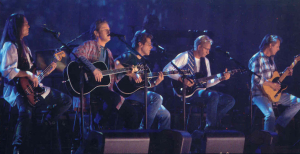
Yep, It Froze Over: From left, Timothy B. Schmit, Don Henley, Glenn Frey, Joe Walsh, and Don Felder all go Unplugged, in 1994.
Anyway, it started right with the introduction, where the music starts [sings intro melody], and we rehearsed it that way. Since we couldn’t use a real drum kit, I had our percussionist [Scott Crago] take a kick-drum pedal, hitting a pad that triggered the low bass-drum sound, and he played congas at the same time. I think a couple of the guys played shaker on it, just to have some percussion going on.
So we worked up that arrangement, got on the soundstage at Warner Burbank Studios and did our soundcheck, and then right at the top of the song, where we started playing it through, Henley said, “Stop. This really needs a special introduction.” And I went, “Oh? What are you going to do?” (both laugh) After all the years of improvising in New York in that jazz-fusion band [Flow], I got pretty good at making stuff up on the spot. Those sessions that I did in Boston and L.A., when I started working in the studio — that was one of the things that producers liked: that I could just make up a solo, come up with an introduction, and fill behind a singer.
So I said, “Here. You guys play these chords, brrrring, and I’ll make up something. You go brrrring, and I’ll play a chord. Brrrring again, and I’ll play something else. And when I finish playing this line that I’ll make up, we’ll start the percussion. It’ll go eight bars or something, and then we’ll start the song. Nobody will really know what it is until we start the song.”
We did one little rough take of it at soundcheck and I went backstage into our trailer on the soundstage, sat there with a nylon guitar, and just got familiar with playing over those changes on gut-string guitar.
We filmed the show twice in the same night — an early taping and a later taping that were full-dress so they could intercut between the two. Both times, we went out and played that chord and then I’d play something, they’d play another chord and I’d play something, and finally, when it was over, one of the two takes was more in the pocket and more emotional than the other one, so we chose that one. Both takes were made up on the spot. They were both different. Just a shot from the hip and the heart. (laughs)
Mettler: A pretty hip shot from the hip, you could even say.
Felder: (laughs) And it was just made up on the spot.
Mettler: How does it feel playing “Hotel California” today? When you play the electric version onstage, you have a variation of that intro attached to it.
Felder: You know, I really wish there was a way I could play both versions of that song, because a lot of people really like the acoustic version with the nylon-string guitar. It’s much more subtle, I guess is the best way to put it, as opposed to the electric with the double-neck and the Leslie, which is a lot more rock and more powerful on the ending. I have yet to find a way to work it up in that acoustic format where I think it would be as strong, if not stronger, than the original arrangement.
Mettler: Is there a way to start with the acoustic and then swap to the double-neck in the middle of it?
Felder: (laughs) I’d like to! What I’d literally have to do is have an acoustic on a stand, and then walk up to the stand with the double-neck hanging off my back, play this whole introduction, and swap guitars while the percussion was going. It’s definitely something I could try to work up and do for something special. But now, “Hotel” happens at the very end of the night. It’s the last thing. By that time, everybody is standing on their feet, ready to go, so to do that acoustic intro, and then switch to that other thing — I don’t know that that would work.
Mettler: Yeah, I can see how that might be a bit tough to do. What do you look forward to on this winter tour?
Felder: I personally like playing smaller rooms, anything that’s 1,500 to 2,000 to 3,000 seats — an actual performing theater or performing arts center, or a casino with a performing arts room — mainly because the sound is so much better, and the crowds are more comfortable than they are at general-admission festivals. It’s a more pleasant experience to be in a smaller room. I remember playing the stadiums with the Eagles, and you could see the first 15 rows, and that’s it. The stage is 20 feet up off the ground, and there’s just no personal contact. It doesn’t matter how good the video screens are — you’re just not right there. I prefer a more intimate, better-sounding show. It’s just a different texture and experience in a smaller, intimate room like that. It’s really why we do those size venues, because I think people walk out of there having a much better experience than sitting in some nosebleed seat in a hockey arena. It’s just not the same experience.
Mettler: So we’ll get to hear songs like “Wash Away”?
Felder: “Wash Away” will be in there, “Girls in Black” will be in there, “You Don’t Have Me” will be in there. I might do one or two other songs and alternate them in and out. Every now and then I do this acoustic song, “Over You,” which is really stripped down with me and an acoustic guitar and a little bit of pedal steel; not like one of those big, overpowering tracks. I think it gives the audience a real peek at the intimacy.
Mettler: Could we get “Bad Girls” [from 1983’s Airborne] in there at some point?
Felder: You know, a lot of people have asked me to do some stuff from my old records — people want to hear “All of You” [from the Heavy Metal soundtrack, 1981] and “Bad Girls,” and those sorts of things — I have never worked them up! But I’ve had so many requests that it’s probably a good idea that I do for a couple of reasons. It would be fun this upcoming summer to throw one or two of those in on the rare occasion. But you’re right; I think I should work up a couple. That would be fun.
Mettler: I’m going to hold you to it! Last thing — now that it’s in the rearview, how do you view the Eagles part of your career?
Felder: I’m very proud of the work we did together. The records we wrote and recorded together, the success we were able to generate together — I feel that it was a very magical combination of unique talents of voices, writing, guitar parts, and production. It was a magical, unique combination that happened in a certain place and time. And I’m very proud to have been a part of that. Every time I hear the work we did on the radio, I go, “Oh! You were really good!” (chuckles)
Tags: 96/24, Airborne, David Crosby, Don Felder, download, Eagles, Flow, Heal Me, Heavy Metal, Hell Freezes Over, High Resolution Audio, Hotel California, LP, Road to Forever, Soundtrack of Summer, Unplugged, vinyl, Wash Away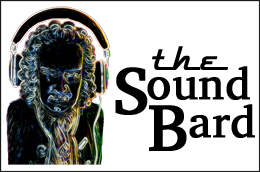
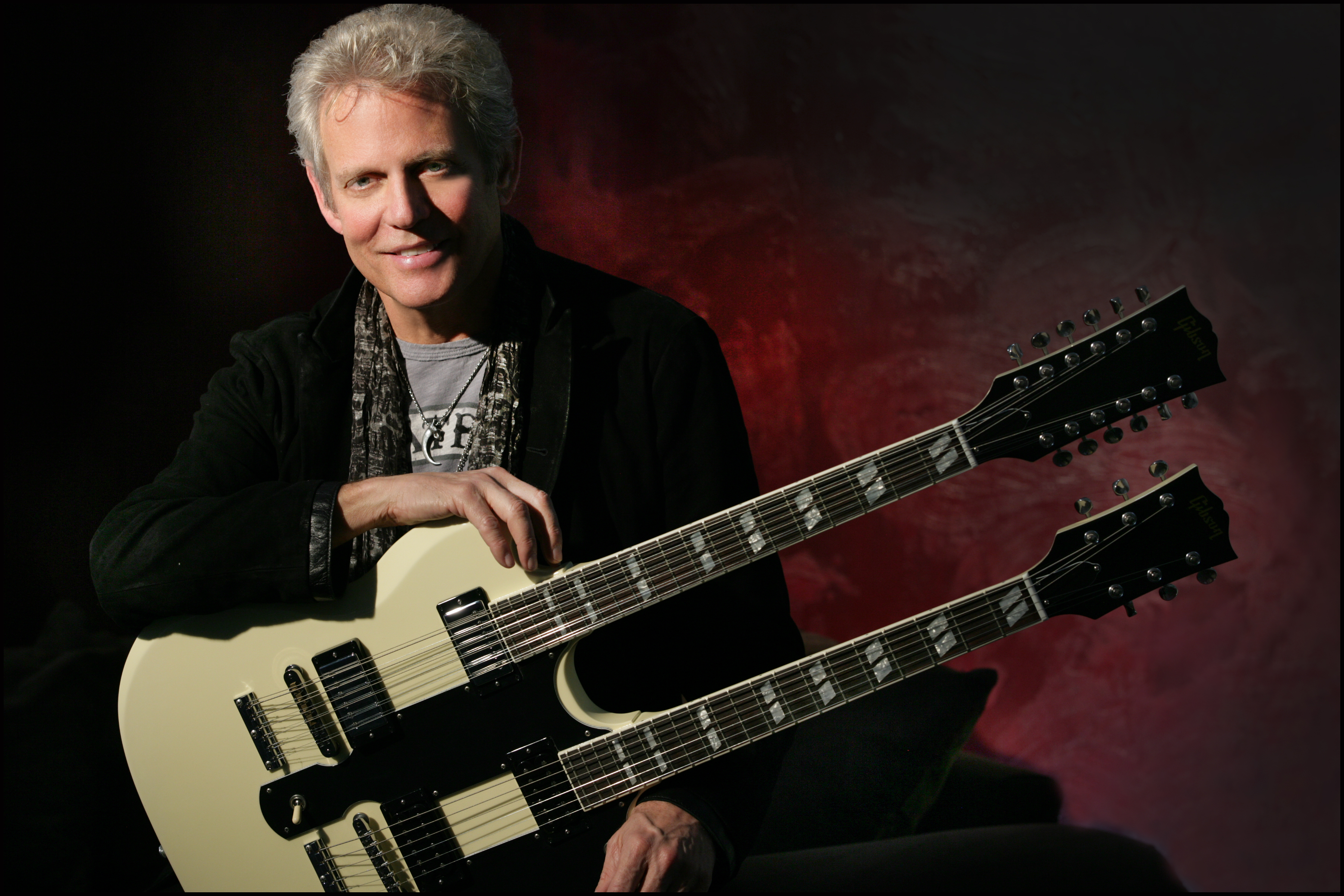
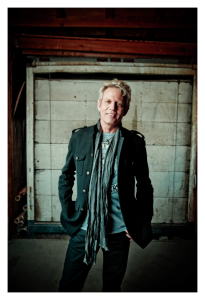
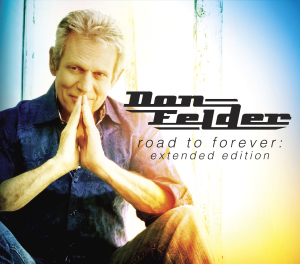
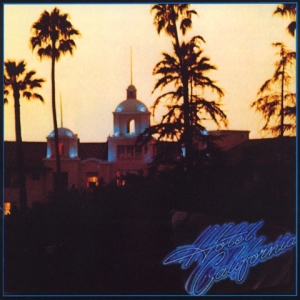
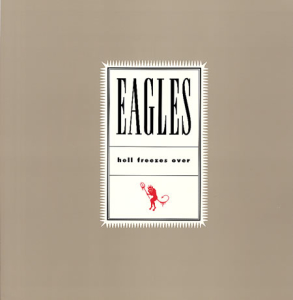
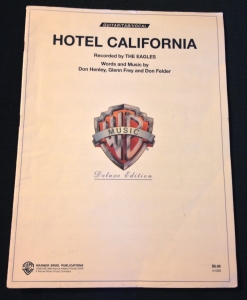

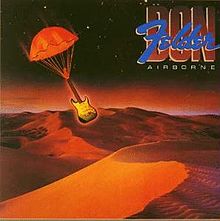
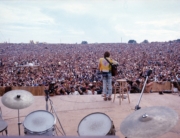
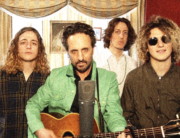
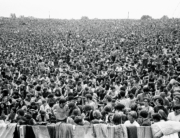
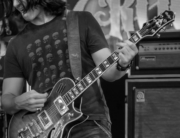
What an incredibly well written interview, Mike Mettler!
I enjoyed reading about the UN ‘goosebumpy gathering’, “Hotel’s” instrumental challenges, his preference of smaller, more intimate venues which leave the audience’s experience unlike any arena could provide and the fact that Don Felder truly cares about every facet of his music & performances.
I had paused on chapter 5 of his book, “Heaven and Hell”, I believe it’s time I finished it.
Peace & Love!
Miss Ruby
Thanks for those kind words, Miss Ruby! It always helps when you have such a genial, informative interviewee. I’m looking forward to seeing what Don will do out on the road this winter and this upcoming summer — he’s on a great bill, which is all I can say about it at this point. 🙂 Definitely get back to Heaven and Hell if you can — it’s a great read through and through!
Mike Mettler
The SoundBard